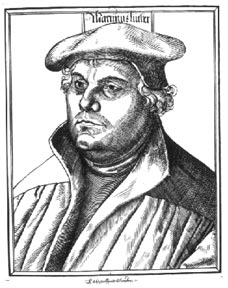 The "Neutral" Stance
The "Neutral" StanceWorld Vision shocked the evangelical world earlier this week with their "neutral stance" on the homosexuality debate. An interview with World Vision president Richard Stearns by Christianity Today sums up their initial stance:
"World Vision's American branch will no longer require its more than 1,100 employees to restrict their sexual activity to marriage between one man and one woman...a policy change announced Monday will now permit gay Christians in legal same-sex marriages to be employed...this is not an endorsement of same-sex marriage. We have decided we are not going to get into that debate. Nor is this a rejection of traditional marriage, which we affirm and support."While World Vision sought to remain neutral by not getting "into that debate," many disagreed vehemently that this policy was a neutral stance. While purported to be neutral, they condoned same-sex marriages, thereby tipping their hat to the hypocrisy of their neutrality aim.
John Piper quickly responded to their statement: "Make no mistake, this so-called 'neutral' position of World Vision is a position to regard practicing homosexuals (under the guise of an imaginary 'marriage') as following an acceptable Christian lifestyle..."
The World Vision Reversal
On March 26th, World Vision reversed its decision to permit the hiring of homosexuals. Stearns stated in response to the reversal:
"Yes we will certainly defer on many issues that are not so central to our understanding of the Christian faith...but on the authority of Scripture in our organization's work...and on marriage as an institution ordained by God between a man and a woman--those are age-old and fundamental Christian beliefs. We cannot defer on things that are that central to the Christian faith."World Vision's newly revealed stance upholds the authority of Scripture and the intolerance of an anything goes lifestyle. America's god these days is tolerance; a tolerance that says everyone's point of view as equally valid to our own and that any who disagree are bigots. Depravity continues.
But at the heart of World Vision's reversal is an important emphasis on their decision to align with the clear teaching of the Scriptures regarding how one was created to live. Kevin DeYoung, I believe, highlights the importance of this foundational belief in a productive way:
"The evidence is so overwhelming that Luke Timothy Johnson, New Testament scholar and advocate of legitimizing homosexual behavior, argues rather candidly: 'I think it important to state clearly that we do, in fact, reject the straightforward commands of Scritpture, and appeal instead to another authority when we declare that same-sex unions can be holy and good. And what exactly is that authority? We appeal explicitly to the weight of our own experience and the experience of thousands of others have witnessed to, which tells us that to claim our own sexual orientation is in fact to accept the way in which God has created us.' At its root, support for homosexual behavior is not simply a different interpretation of Scripture; it is a rejection of Scripture itself.' (Italics mine)The decision of World Vision, of which I am glad they reversed, upholds not a cultural tolerance of an anything goes country, but upholds the authoritative word of God itself. As a Christian where else does authority lie but in God's word? Props to World Vision for clarifying their position and recognizing the authority of God's word.
Nearly five hundred years ago Martin Luther noted the same thing in the face of Rome's tyranny and I commend it to you this day as you think on the very real issue of the subordination of scripture's authority under our own authority to pick and choose what we think is right for us:
"Unless I am convicted by Scripture and plain reason--I do not accept the authority of popes and councils, for they have contradicted each other--my conscience is captive to the Word of God. I cannot and will not recant anything, for to go against conscience is neither right nor save. God help me. Amen."* * *
JT Holderman is Assistant Pastor of Bellevue Evangelical Presbyterian Church in Gap, PA.





